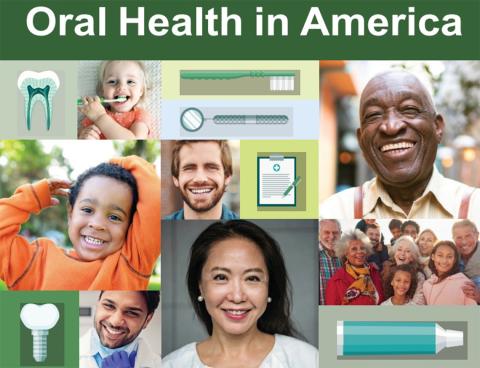NIDCR Report Recommends Strategies to Address Oral Health Inequities

Oral health is intrinsic to overall health and well-being, yet CDC data shows nearly half of adults over age 30 have periodontal (gum) disease, and 90 percent have tooth decay. These and other oral diseases disproportionately burden people from marginalized and underserved groups.
Americans’ oral health has improved over the last two decades, but disparities in oral health have persisted and pose a major global public health threat, write NIDCR director Dr. Rena D’Souza, acting science advisor to the President and former NIH director Dr. Francis Collins and U.S. surgeon general Dr. Vivek Murthy in a new perspective published in the New England Journal of Medicine.
Drawing on findings and recommendations from NIH’s comprehensive report, Oral Health in America: Advances and Challenges, the authors write that equalizing oral health and access to care will require research and policy initiatives that make dental care more affordable, accessible and responsive to communities.
The Covid-19 pandemic, which has disproportionately affected the same groups that experience oral health inequities, highlights the effects of social and systemic factors on health and well-being, write the authors.
One threat to oral health is misuse and addiction to opioids, which are commonly prescribed to patients who lack access to dental care and seek treatment for dental problems in hospital emergency departments. In addition, people with certain mental illnesses have particularly high rates of oral disease.
The authors call for several policy changes to improve access to oral health care. These include integrating oral, medical and behavioral health care in traditional and non-traditional health care settings, such as schools and community health centers, as well as including communities in the planning, design and execution of oral health care systems.
Efforts are also needed to diversify the composition of oral health professionals, address education and training costs and build a strong oral health research enterprise. Such policy changes, with a greater emphasis on prevention, can disrupt inequities and improve overall oral health care.
For details, visit: https://www.nidcr.nih.gov/oralhealthinamerica
